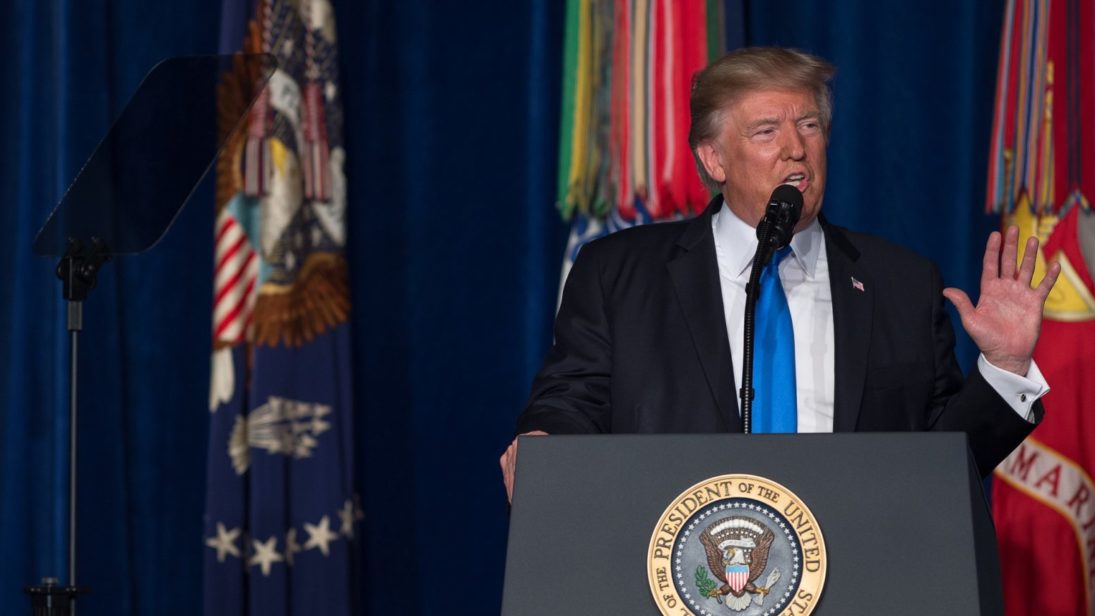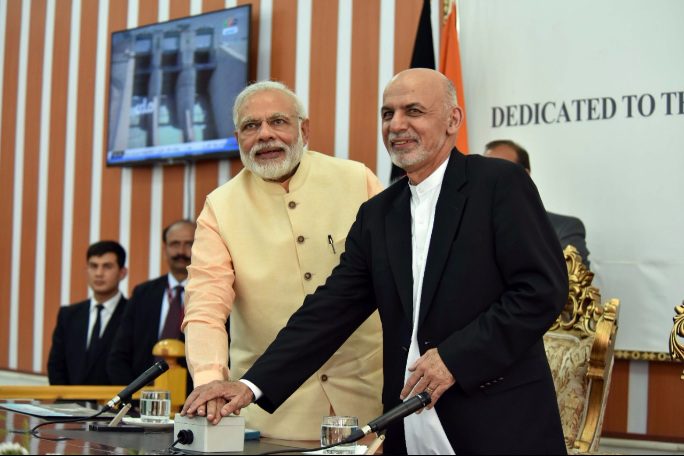
Late last month, after the months of deliberation, the Trump administration announced its revamped policy for Afghanistan and South Asia. According to Trump, the United States seeks an enduring solution for Afghanistan that avoids any hasty withdrawal that could create a vacuum for terrorists to exploit. With 20 terrorist organizations based in Afghanistan and Pakistan, the Trump Administration does not want a repeat of the situation in Iraq in which the Islamic State of Iraq and the Levant (ISIL) was able to take hold. Trump also emphasized the integration of “all instruments of American power,” including diplomatic, economic, and military tools.
In reality, however, Trump’s Afghan strategy is essentially more of the same. Trump’s troop increase will do nothing more than extend 16 years of failed stabilization efforts in the war-torn country. Even while this new policy may not lead to lasting change, Trump’s policy does differ in one important aspect from the preceding Obama administration. Namely, Trump has signaled his desire to incorporate India as a key regional player in Afghanistan’s security and development, a change that has rattled Pakistan for several reasons. As such, Trump’s strategy is counter-productive as it will ultimately ratchet up the strategic competition between India and Pakistan and further destabilize the South Asian region.
Criticizing Pakistan and welcoming India
While Trump called Pakistan a “valued partner” and stated Pakistanis have “suffered greatly” in combating terrorism, the U.S. president took a sharp, accusatory tone towards its supposed ally. In particular, Trump directly accused Pakistan of acting as a “safe haven” for terrorist organizations that “try every single day” to kill American citizens in the region. Trump also utilized his signature transactional approach to foreign policy, noting that the United States pays Pakistan “billions and billions of dollars…[while] they are housing the very terrorists that we are fighting.”
Unlike the administrations of George W. Bush and Barack Obama, Trump does not appear, despite some positive indications, to view Pakistan as a critical ally in the fight against extremism, and would rather seek a new strategic partner in the region, namely India. While Trump only mentioned India four times in his speech, he did refer the United States’ relationship with India as a “strategic partnership” and India as a “key security and economic partner.” With regards to Afghanistan, Trump stated his administration would like India “to help us more.” While India has been wary of taking on a more direct security role in Afghanistan, the speech was well-received in the Indian media and security establishment.
Acknowledging India as key to Afghanistan’s stability is a remarkable shift in U.S. policy, though it does reflect the current reality of India-Afghanistan relations. India has made large investments in Afghanistan’s infrastructure and has provided considerable economic assistance. The two countries also inaugurated an economic “air corridor” in June. And while India’s Defense Minister, Nirmala Sitharaman, unequivocally stated that India will not send troops to Afghanistan, she did leave the door open to extended training for the Afghan military and police.

However, elevating India’s role in Afghanistan does not come without consequences. As the United States shifts towards greater reliance on India regarding Afghanistan, this shift will add greatly to Pakistan’s security concerns. Pakistan has always been skeptical of India’s influence in Afghanistan. Islamabad assumes a deep Indian presence in Afghanistan is a direct threat to its national security, claiming that India supports a hostile political regime in the government of Afghan president Ashraf Ghani and has also supported anti-Pakistan militants. Likewise, Pakistan has repeatedly claimed that India and Afghanistan have had a hand in fueling an ongoing ethnic insurgency in Pakistan’s Baluchistan province. If India were to fortify its presence in Afghanistan, this too would represent a direct threat to Pakistan’s security interests as it opens up the possibility of an Indian threat emanating from both Pakistan’s eastern and northern borders.
Recommendations
Afghanistan’s stability cannot be achieved without the active involvement of Pakistan. Given their geographical proximity, Pakistan should desire a stable and safe Afghanistan. Ignoring or lessening Pakistan’s role in Afghanistan will only exacerbate tensions and escalate the strategic competition between India and Pakistan.
As such, the best way for the United States to secure the “honorable and enduring outcome” it desires in Afghanistan is to work with Pakistan. Pakistan should bring the results of its broad anti-terrorism campaigns to the attention of regional actors in a strategy that could potentially provide reassurance to the United States, and India, that Pakistan is engaging in a genuine crackdown to advance its own security interests.
For its part, the United States should adopt a balanced approach towards Pakistan and India with regards to their respective roles in Afghanistan. Overly criticizing Pakistan, while offering a full-throated welcome to India, will only further deteriorate Pakistan-India bilateral relations and negatively impact the security situation in Afghanistan. However Trump decides to move forward in Afghanistan, he should deeply consider the implications and long-term effects of his strategy on India-Pakistan competition, Afghanistan’s development, and the broader stability of the South Asian region.
***
Image 1: Jim Mattis via Flickr.
Image 2: Narendra Modi via Flickr.


